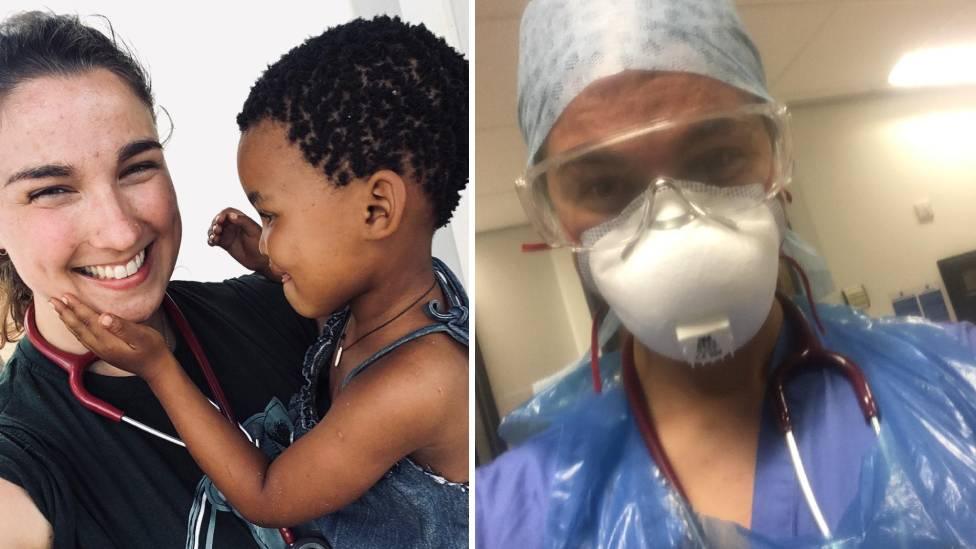Covid: Cancer delays 'could cause 2,000 deaths in Wales'
- Published
Why this cancer patient feels coronavirus has 'cost me a future'
As many as 2,000 people could die because of Covid-related delays in the Welsh NHS, a cancer expert has said.
With virus cases rising, Prof Tom Crosby, of the Wales Cancer Network, fears cancer cases missed in the first lockdown may now be harder to treat.
Health Secretary Vaughan Gething said it would be "foolish" to have a plan for backlogs before the pandemic is over.
But he said work was under way to address the issue with health boards.
Having just emerged from a second lockdown, the pressure on the NHS in Wales shows no sign of letting up as winter approaches.
And alongside the spread of the virus, medical professionals are very worried about deaths that could occur not because of Covid, but due to the backlog of appointments and surgery it is causing.
BBC Wales Investigates has been uncovering the full extent of the looming problem facing the NHS.
Extra cancer deaths
Delays caused by the pandemic are a serious concern to Prof Crosby, who is medical director at the Wales Cancer Network.
He said when the pandemic first hit, acute Covid-19 cases became the focus in hospitals at the expense of cancer, cardiac and orthopaedic appointments.
"Some of the conversations we've had with patients in the clinic have been really, really challenging," he said.
"Then there are thousands of patients who have not come through to the system that usually would have.
"Some of those are going to have had cancer, and they will not have been diagnosed now."
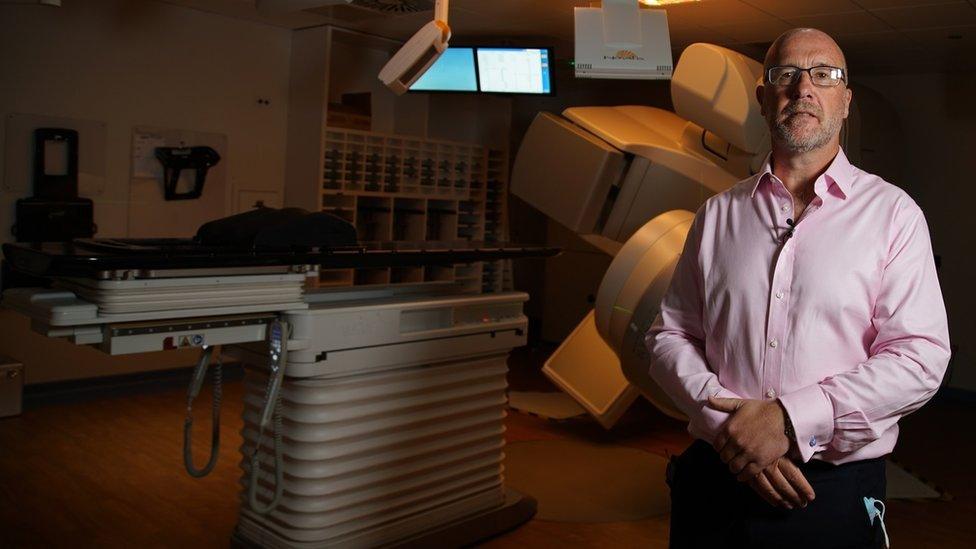
Prof Tom Crosby fears cancer services will be affected for two to three years
Prof Crosby has been looking at possible outcomes for cancer patients because of delays in diagnosis and treatment.
"We have done some modelling work with England, and it has suggested that between 200 and 2,000 excess deaths will occur as a result of undiagnosed or untreated cancer in Wales," he said.
"I think the effects on cancer services are going to be here for two to three years."
The BBC has been studying figures put together by Swansea University.
Researchers there have been tracking the anonymised health records of the entire population of Wales during the pandemic.
Their findings show that surgery across the country dropped by about 80% in April.
Overall, during the first lockdown nearly 62,000 fewer patients were operated on in Wales compared with the same period in 2019.
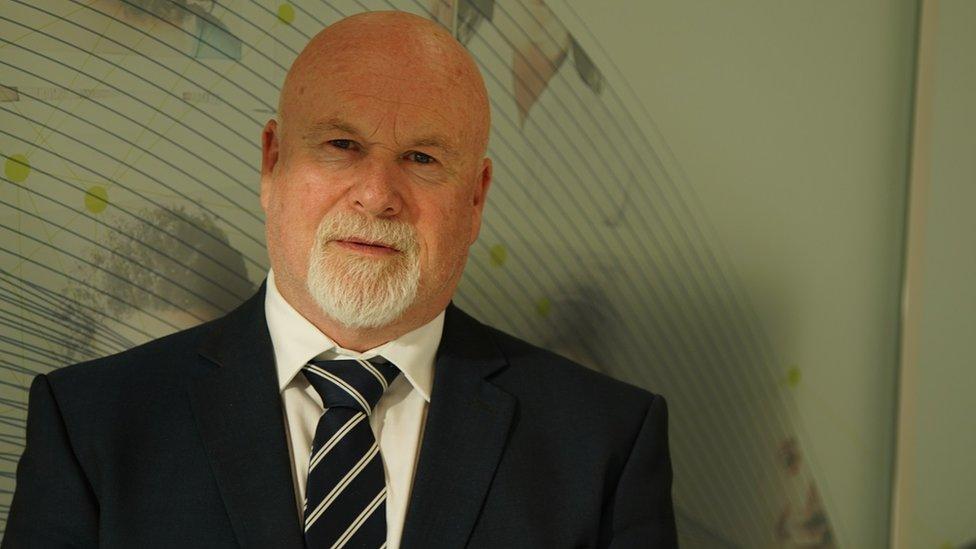
Ronan Lyons has been part of the biggest healthy study ever undertaken in Wales
Prof Ronan Lyons, from the SAIL (Secure Anonymised Information Linkage) databank, said: "The scale of the changes - we've never seen anything like it.
"There have been signs it has been recovering, but what we're worried about now, as the virus increases, is that it will again have a massive knock-on effect on hospitals and their ability to provide those services."
Prof Crosby said he fears "an unprecedented tsunami" of demand for cancer services is coming.
"We're currently, in most services, running at about 60 to 80% of our normal capacity," he said.
"Really we should be dealing with 120 to 130% capacity, to deal with the backlog of cases."
Future 'robbed' by lockdown
One of the people affected by the way Covid-19 has disrupted the NHS is keen wheelchair athlete Simon Green, who is having treatment for a fast-growing brain tumour
Two years ago he was being treated for a tumour and thought he'd recovered, but at the start of 2020 he became unwell.
He was told he needed an MRI scan, which was scheduled for March. But then the pandemic began, and it was postponed.
Mr Green had to wait two months before eventually having his scan - and it provided the worst possible news.
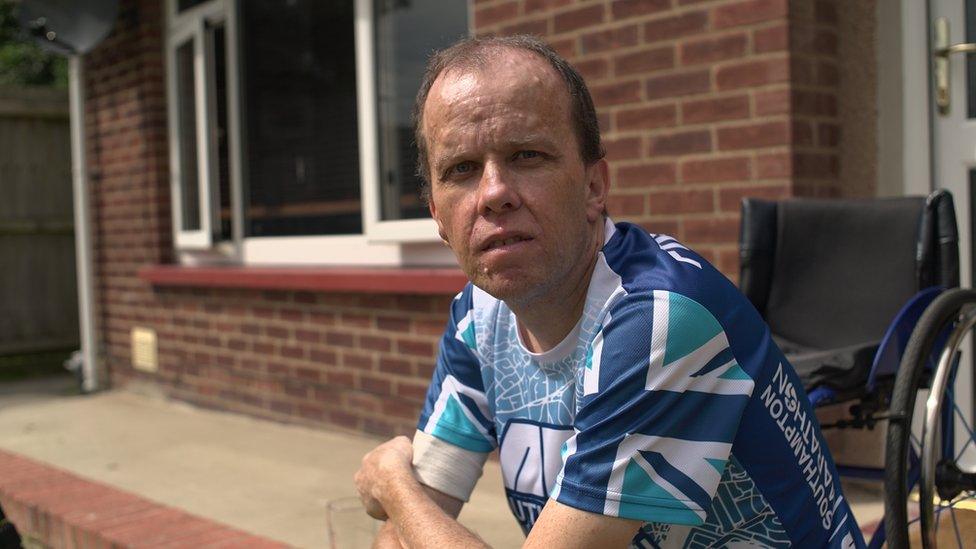
Simon Green faced an anxious wait over his brain tumour
"They told me that the tumour was back but bigger than before on the spread amongst the brain and was not operable," he said.
"If they scanned me on the original date in March rather than in May, then then I think they would have found a tumour a lot earlier because it's quite fast growing."
Mr Green said he does not blame the NHS, which he believes has been "overwhelmed", but thinks had he not complained he might still be waiting for a scan.
"I believe lockdown has robbed me of a future," he said. "I'm terrified."
Simon's health board, Cardiff and Vale, said it was unfortunate that it had to postpone some services because of Covid-19 and it was done in line with Welsh Government advice.
It also urged anyone who feels their condition is worsening to seek medical help.
Situation 'was mismanaged'
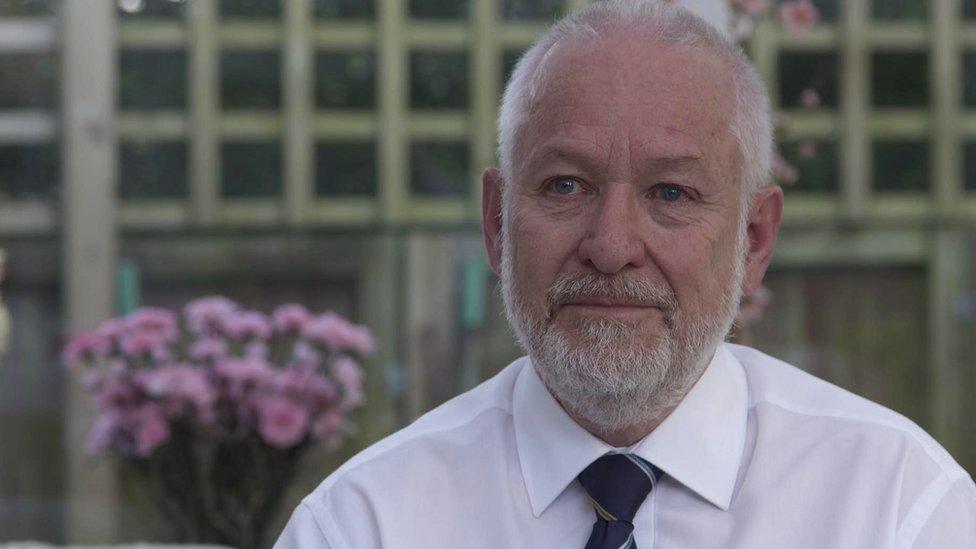
Christopher Mugford faced a lengthy delay for exploratory surgery
In the Cynon Valley, Christopher Mugford faced an anxious wait after displaying possible symptoms of bowel cancer.
In January he was told he needed a colonoscopy, but lockdown meant many non-emergency operations were cancelled.
Though due to have it in March, he eventually had to wait until September to have the procedure which revealed he did have cancer.
He has now had surgery to remove most of his colon and faces months of recovery time.
"Am I annoyed about it? Well, that's an understatement," he said.
"The medical team have been absolutely brilliant. I blame the politicians and the management because they have grossly mismanaged the entire situation."
Those in charge insist they are doing their best.
Mr Mugford's health board, Cwm Taf Morgannwg, would not comment on his case but said it was working to national guidance to maintain cancer services and said urgent cases were still being seen.
It said it understood longer waiting lists caused distress and was looking for alternatives to support those waiting for elective surgery.
'We had to act'
Health Minister Vaughan Gething said prioritising Covid-19 patients during lockdown was the right thing to do.
He said: "Because of the choices we've made, it's undoubtedly the case we'll see poor outcomes and that does mean more people having avoidable disability, more people potentially losing their lives with non-Covid care.
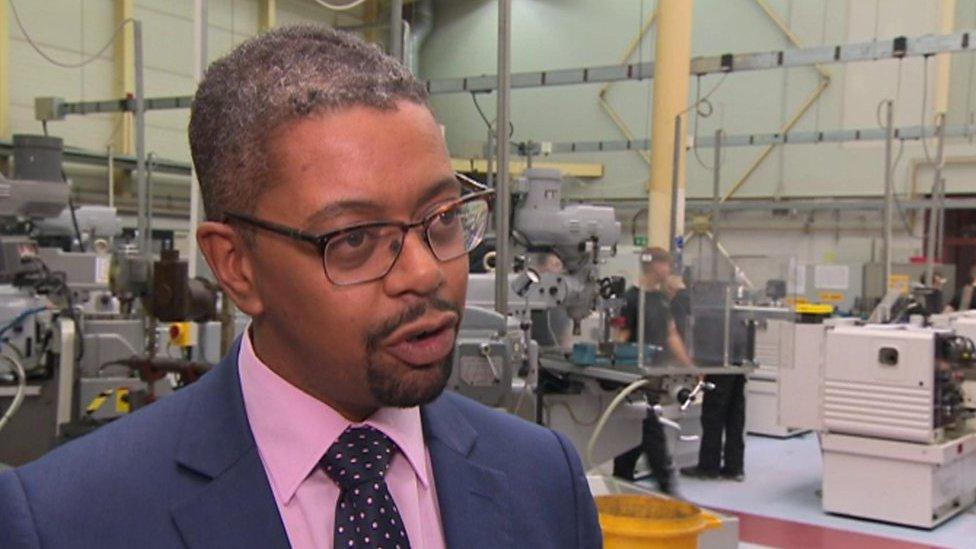
Health Minister Vaughan Gething says it was the right thing to prioritise tackling Covid-19
"Not acting would have meant that not only would the health service have been overwhelmed with very poor care of Covid and non-Covid patients, but it also would have been disastrous for our staff."
Mr Gething said it was too early to firm up plans to get waiting lists down.
"We need to get to the end of the pandemic with more certainty," he said.
"We don't yet know what will happen through the rest of the winter.
"To try to have a nailed-down plan for what June might look like next year would be foolish."
According to Richard Pugh, head of partnerships for Macmillan Cancer Support in Wales, the cases highlighted the charity's research which showed an estimated 2,900 people in Wales could be living with undiagnosed cancer because of the pandemic.
He said: "It is wholly inappropriate for Welsh Government to suggest a plan for clearing the already substantial cancer backlog would be 'foolish'. Services and care will have to adapt to new ways of working, ensuring safety of patients and staff.
"Cancer cannot wait for the pandemic to end and Macmillan wants to make sure cancer is not the 'Forgotten C' of the pandemic."
'So much to do'
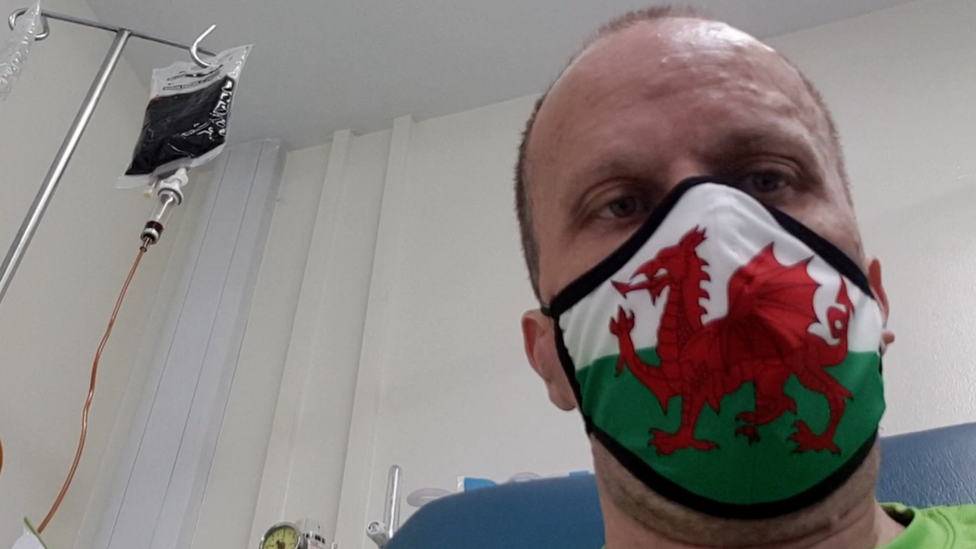
Simon Green says he wants to make the most of the time he has left
Simon Green's programme of chemotherapy was stopped as it was making him too unwell.
He is now having radiotherapy to give him as much time as possible.
Although he won't beat the tumour, he was determined to take on the challenge of completing a virtual London Marathon, which he did in October, raising thousands of pounds for charity.
"Do what you can do now rather than put it off until tomorrow, next week, next month - because next week or next month might not come," he said.
"Whether it's six months or a year I want to make the most of the time I've got left.
"There's so much I want to do."
BBC Wales Investigates The Hidden Cost of Covid is on Monday, 9 November at 20:30 GMT on BBC One Wales and afterwards on BBC iPlayer.
- Published9 November 2020
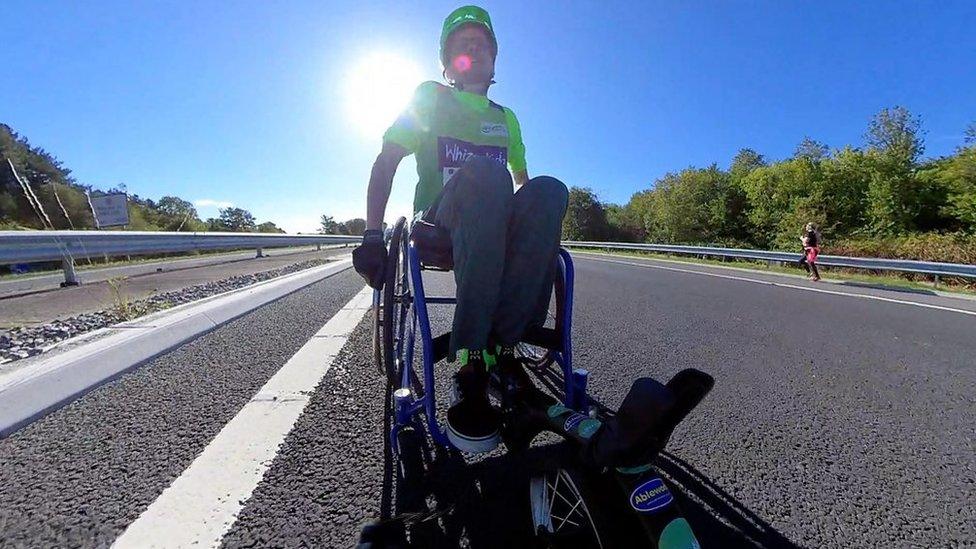
- Published28 May 2024

- Published17 September 2020
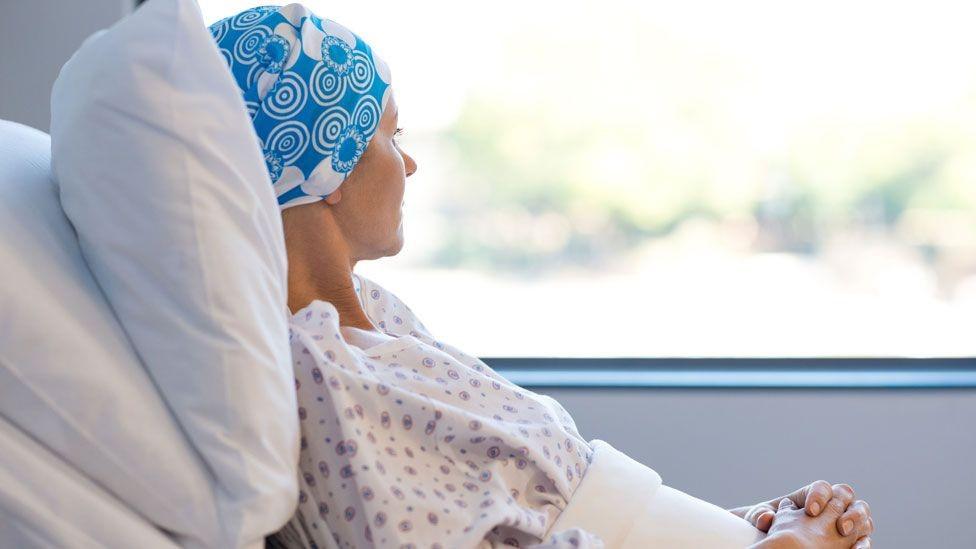
- Published5 November 2020
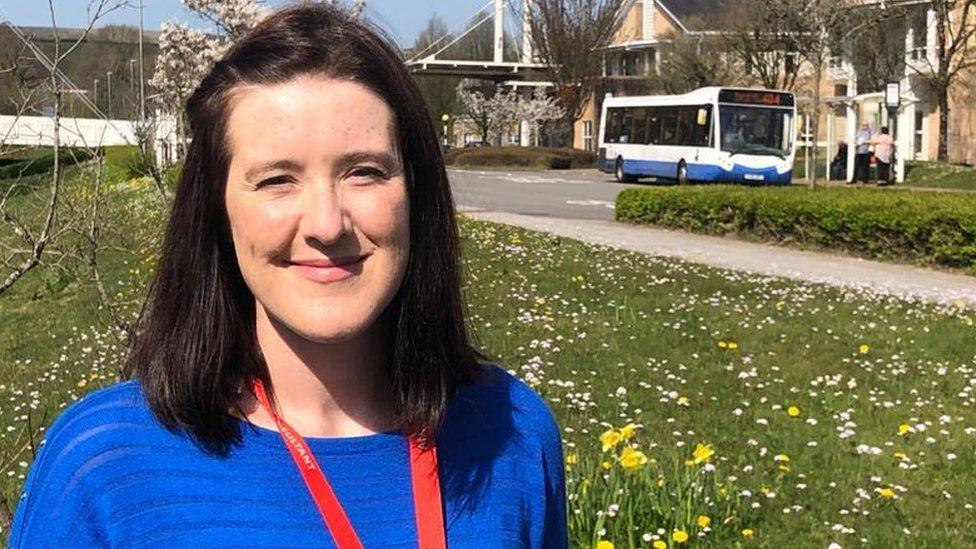
- Published18 August 2020
